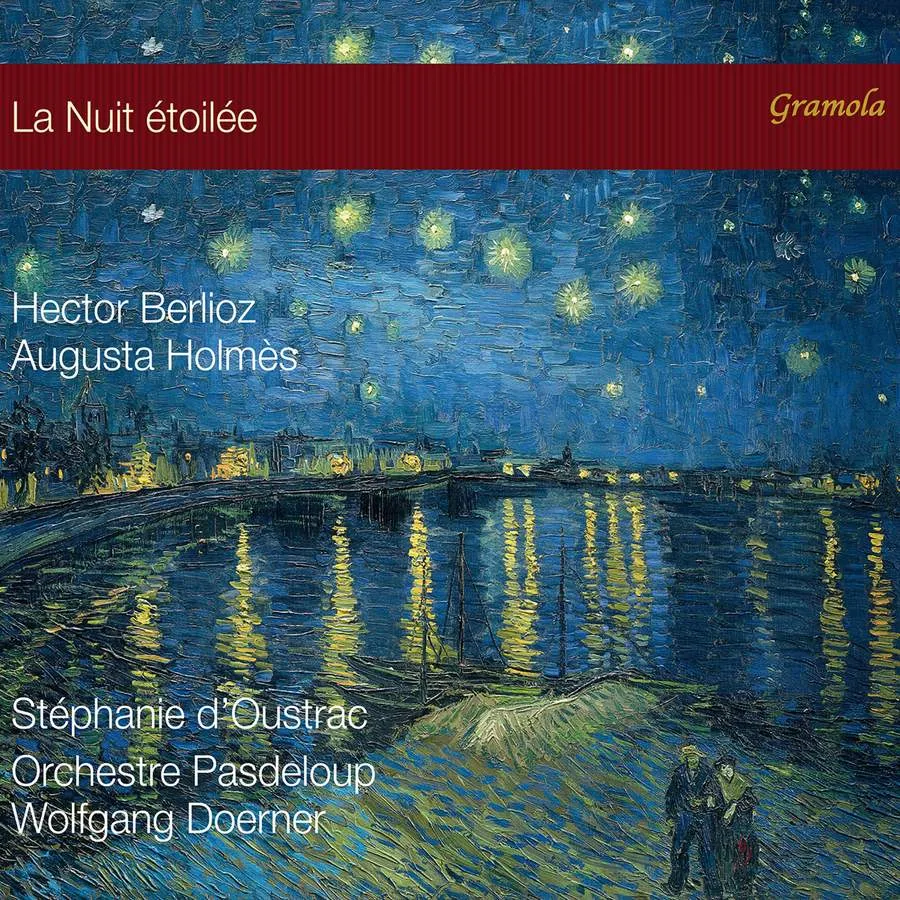
La nuit étoilée Berlioz: Les Nuits d’été; Cléopatre – Scène lyrique; A Holmès: Ludus pro Patria – La Nuit et l’amour Stéphanie d’Oustrac (mezzo-soprano); Orchestre Pasdeloup/Wolfgang Doerner Gramola 99247 56:21 mins
I sense that the engineers have struggled with the acoustic here, because the sound lacks definition to the point that I would dub it ‘woolly’. It means, too, that Stéphanie d’Oustrac’s diction, excellent on other discs of hers, is not as clear as it might be, nor are the orchestral bursts of sound in Cléopâtre as sharp and vigorous. Although d’Oustrac has an exceptional range, with a fine top B flat and an equally resonant one on the F flat two and a half octaves lower, on the emotive word ‘linceul’ (shroud), the voice is no longer quite as seductive as it was. Obviously this matters less in Cléopâtre than in Nuits d’été, where charm is required in ‘Villanelle’ and elsewhere.
The disc’s three raisons d’être are strangely various: celebrations of the 160th anniversary of the Concerts Pasdeloup, of the three strong women involved in the music (Cleopatra, Augusta Holmès and d’Oustrac) and, as a rather poor third, of the idea of ‘night’, which appears tangentially in Nuits d’été and not at all in Cléopâtre. Holmès’s La Nuit et l’amour is nothing special, a piece of pseudo-Massenet that runs out of steam around halfway and then finds it hard to escape from the tonic E flat major. The conductor doesn’t help in Nuits d’été by ignoring many of Berlioz’s rallentando markings, which affect the shaping of the songs. On the other hand, the composer’s meanness with dynamic markings surely has to be supplemented, by agreement between singer and conductor.
Roger Nichols

